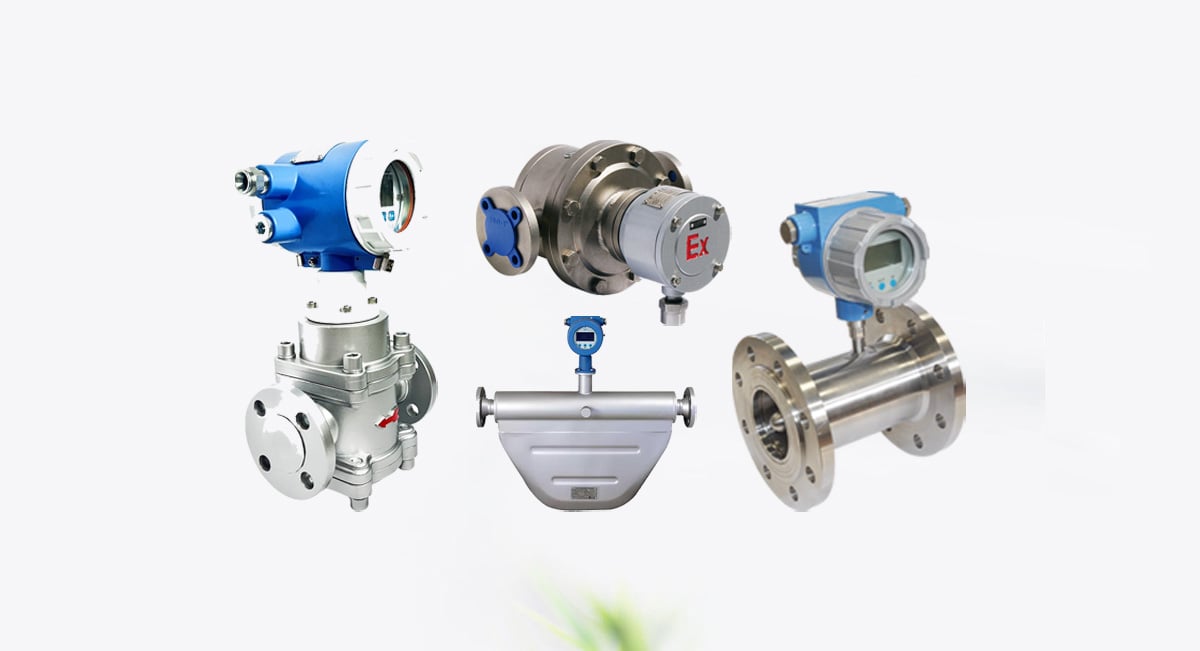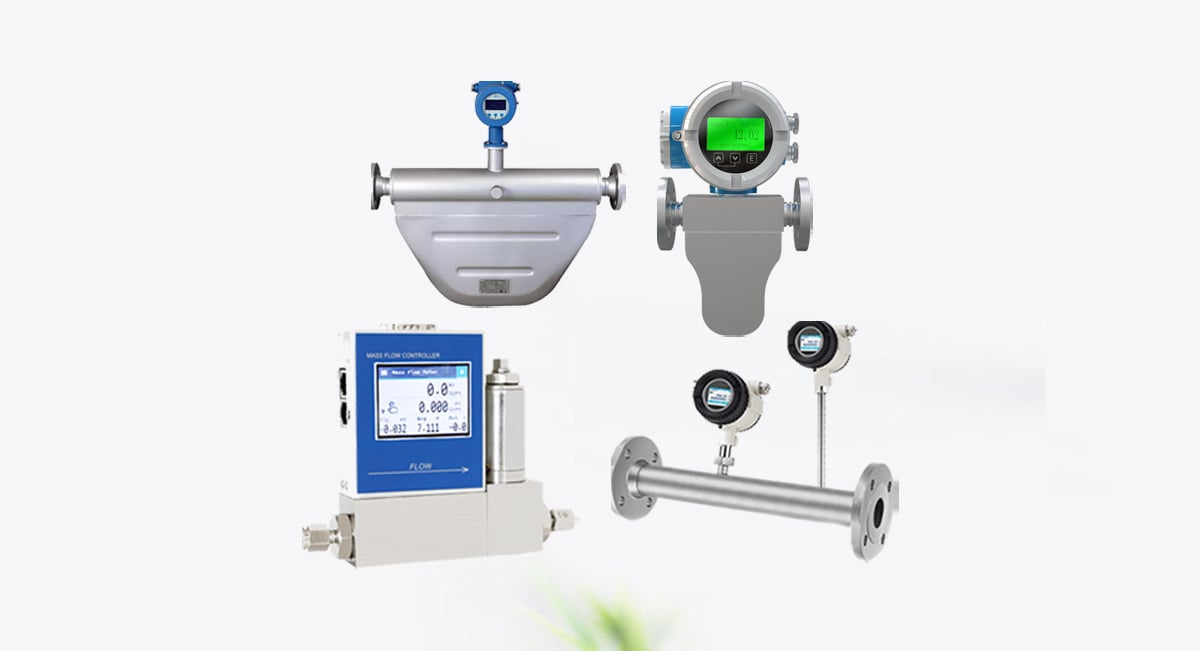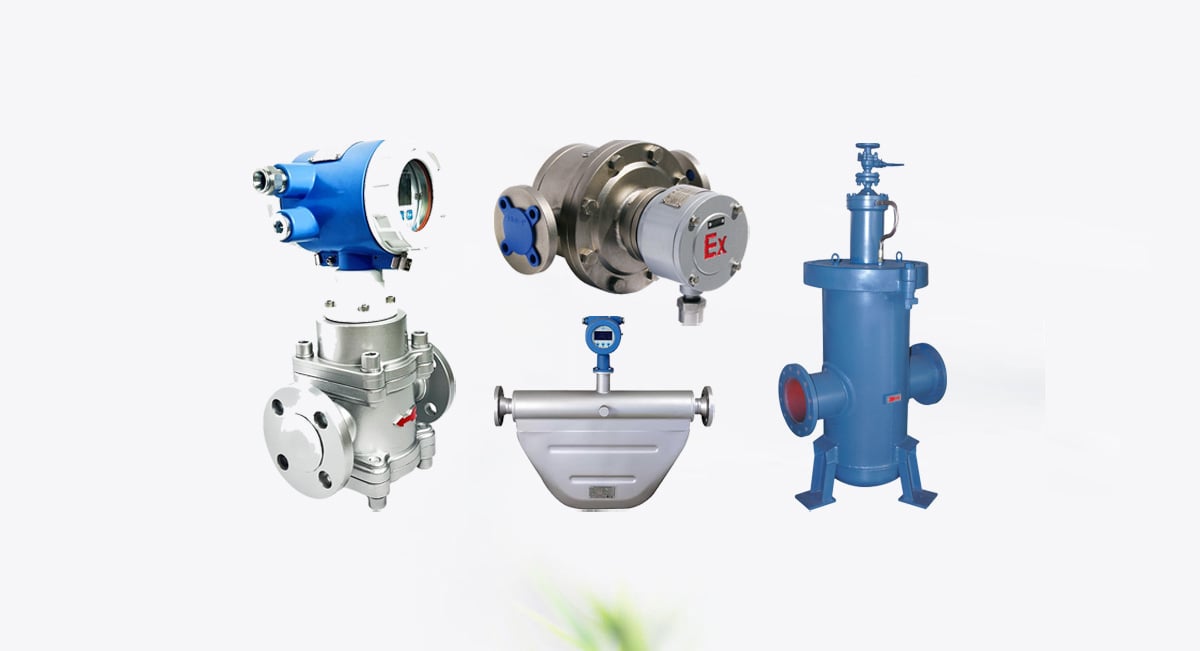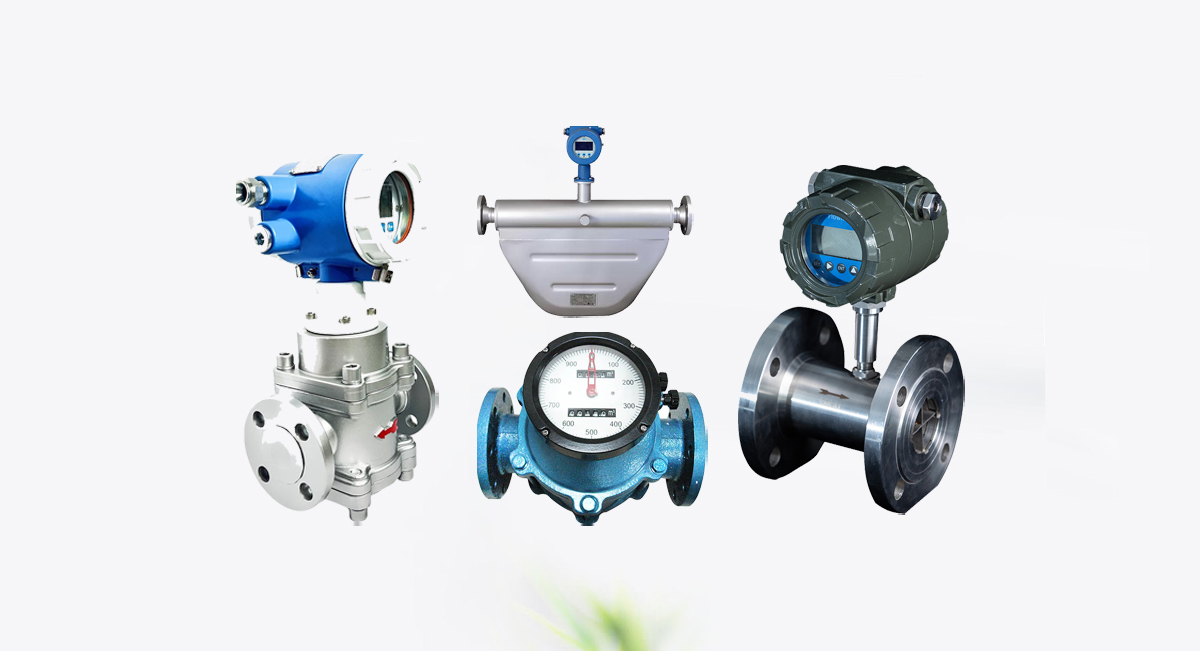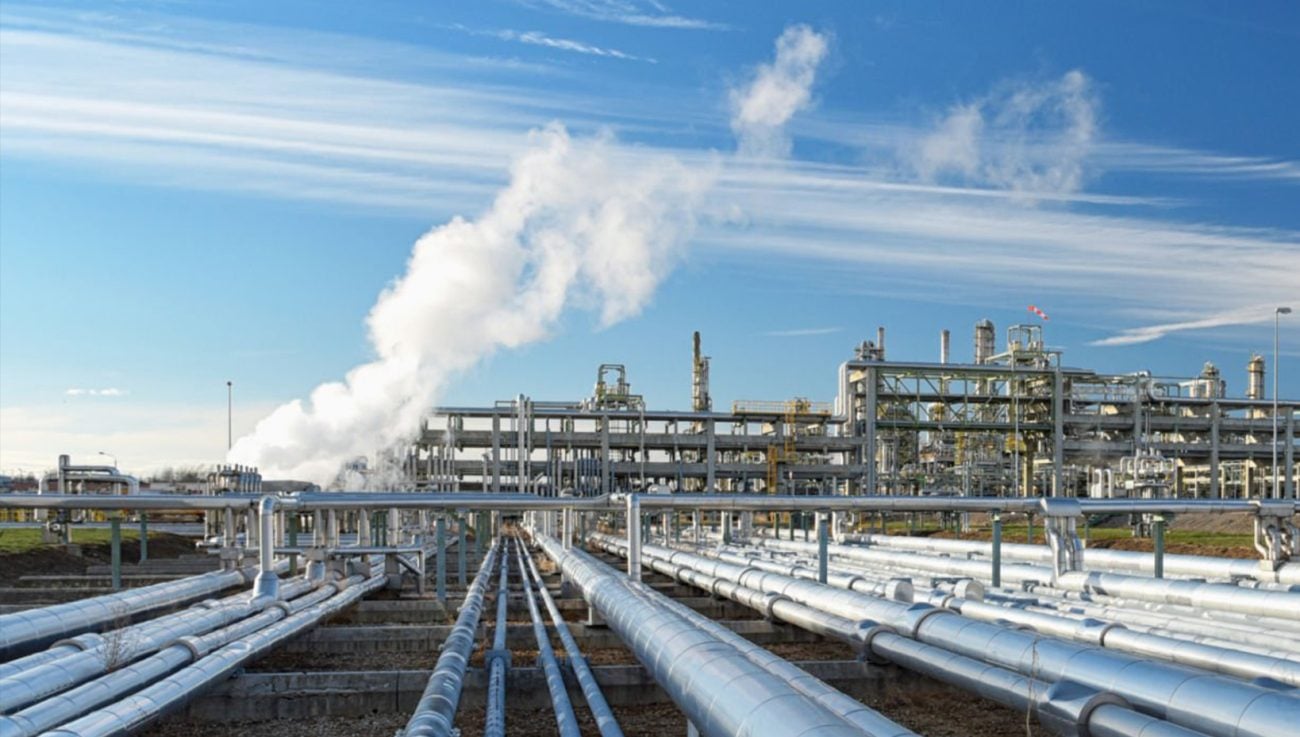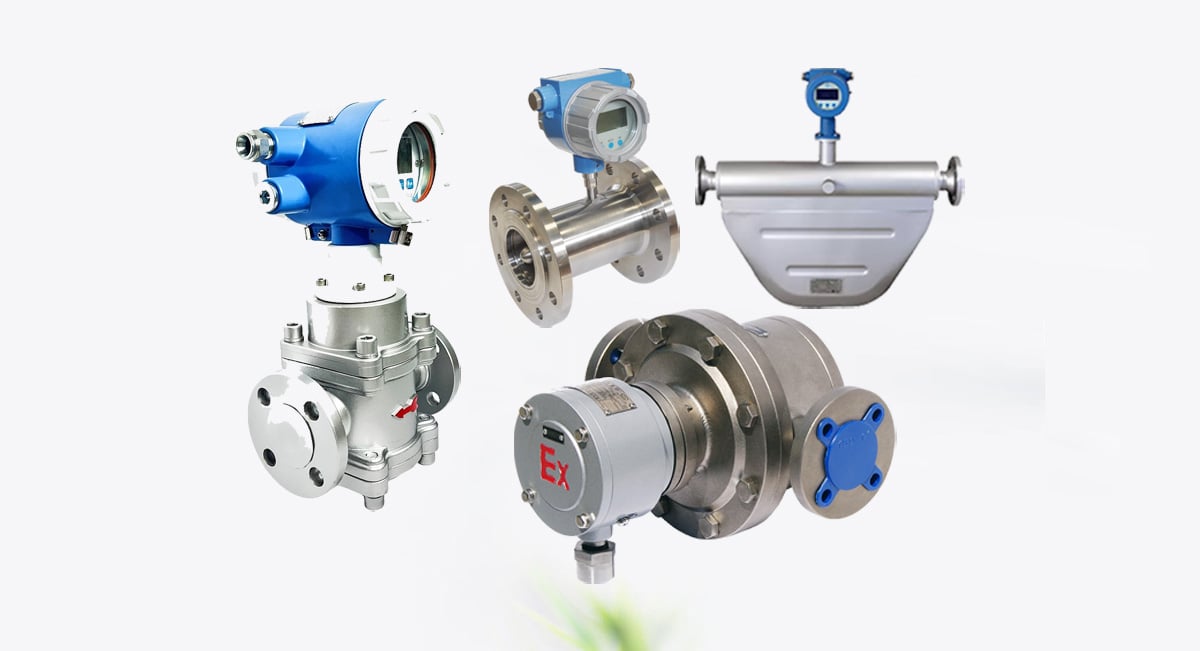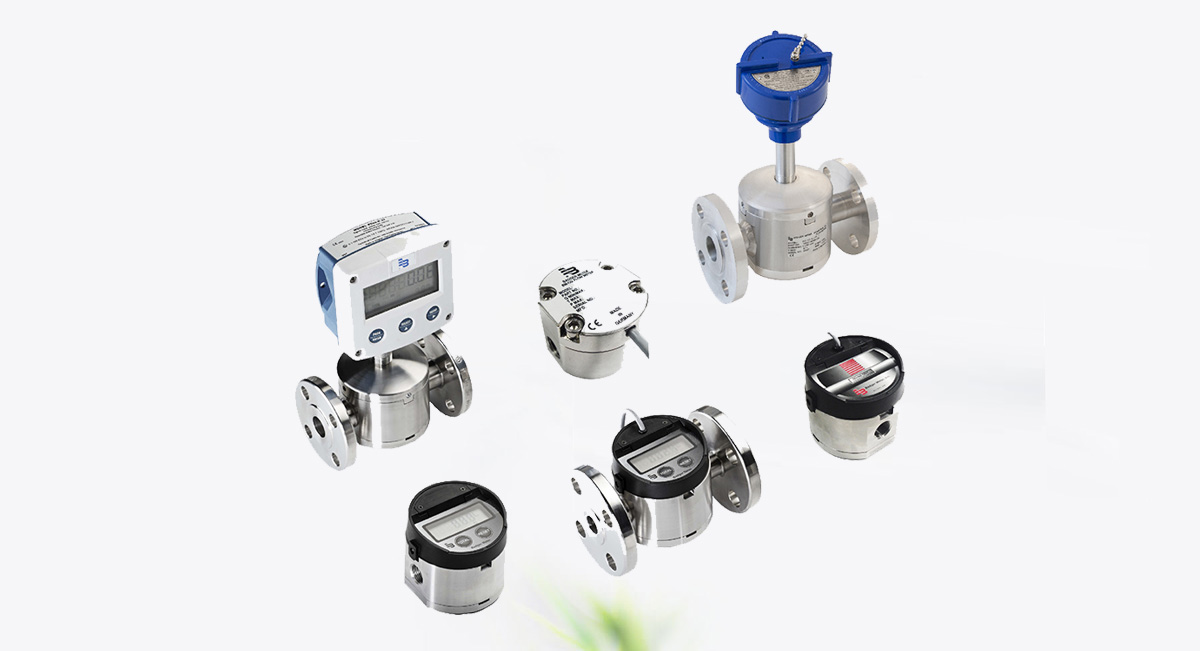What Is Fuel?
Fuel is any material that can store potential energy and release it through combustion or another chemical reaction to produce power. It is the essential energy source for engines, power plants, industrial furnaces, and heating systems. Fuels exist in various forms liquid, gaseous, and solid, and each type has different chemical properties, viscosity, and energy density, which influence how it is stored, transported, and measured.
Accurate fuel measurement is crucial because even a small error can lead to significant financial losses, process inefficiencies, or equipment malfunctions. That’s where fuel flow meters come into play.
Table of Contents
Types of Fuel
Liquid Fuels
Common liquid fuels include diesel, gasoline, kerosene, jet fuel, biodiesel, and heavy oil.
- Diesel: High viscosity, commonly used in industrial engines and generators. Measurement challenges include temperature-dependent density changes and potential air bubbles.
- Gasoline: Low viscosity and volatile, requiring precise sealing and vapor management in flow measurement.
- Kerosene and Jet Fuel: Require high accuracy and cleanliness; contamination can affect performance.
- Biodiesel: More viscous and may contain impurities that affect flow meter stability and calibration.
- Heavy Fuel Oil (HFO): Very viscous and often needs to be heated before measurement. This can complicate installation and calibration.
Gaseous Fuels
Typical gaseous fuels include natural gas, propane, butane, and hydrogen.
- Natural Gas: Compressible, and its density changes significantly with temperature and pressure.
- Propane and Butane: Stored under pressure as liquids and converted to gas for combustion, requiring accurate flow control during phase change.
- Hydrogen: Extremely low molecular weight and high diffusivity, which makes measurement sensitive and requires specialized equipment.
Each fuel type poses unique challenges in measurement. Factors like viscosity, temperature, compressibility, and impurities all influence flow meter selection. Therefore, understanding fuel characteristics is the first step in choosing the right fuel flow meter.
What Is a Fuel Flow Meter?
A fuel flow meter is an instrument designed to measure the rate and total quantity of fuel flowing through a pipe or system. Depending on the measurement principle, it can measure mass flow (the actual amount of fuel) or volumetric flow (the volume the fuel occupies).
Fuel flow meters are widely used in:
- Automotive and marine engine testing
- Power generation systems
- Industrial furnaces and burners
- Fuel distribution and transfer systems
- Aerospace and laboratory testing setups
The primary goal of a fuel flow meter is to provide accurate, repeatable measurements regardless of changes in temperature, pressure, or fuel type.
Best Recommended Fuel Flow Meters
Positive Displacement (PD) Flow Meters
Working Principle: PD meters directly measure the fuel volume by trapping fixed quantities between internal moving parts.
Advantages:
- Very high accuracy (±0.1–0.5%)
- Ideal for measuring viscous liquids such as diesel, lubricants, and heavy oils
- Unaffected by changes in flow profile or viscosity Limitations:
- Not suitable for dirty fluids with large particles
- Requires regular maintenance due to mechanical wear
Best for: Diesel, heavy oil, and lubricating oil applications.
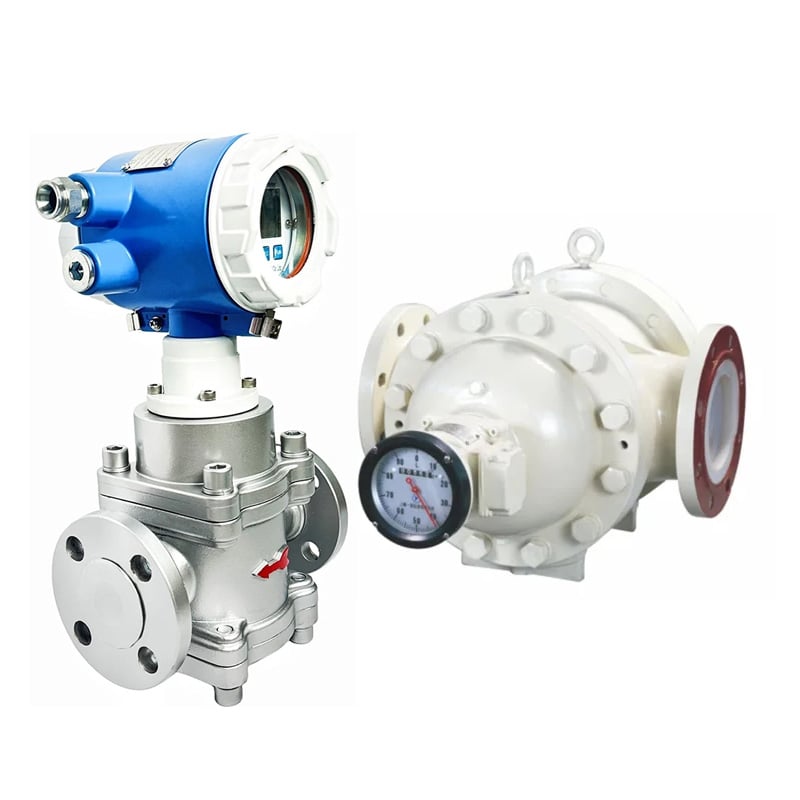
Bi-rotor Positive Displacement Flow Meter (MT-ABR)
- High accuracy up to ±0.1 %, high process pressure up to 110 bar (1595 psi)
- Extremely long service life, economical low maintenance
- Stable in running with low voice
- Good anti-interference performance and long service life
- Strong applicability to viscosity changes

Low Flow Positive Displacement Gear Flow Meter MT-GF
- Designed for low flow liquids from 0.6 L/H
- Designed for high-viscosity fluid measurement, handling challenging media such as syrup, molten asphalt, and honey with reliable accuracy
- High-precision measurement with up to ±0.5% accuracy
- 150:1 wide turndown ratio
Coriolis Flow Meters
Working Principle: Measures mass flow directly by detecting the Coriolis force generated as fuel flows through vibrating tubes.
Advantages:
- Measures true mass flow independent of temperature or pressure
- High accuracy (±0.1–0.2%)
- Can measure density and temperature simultaneously Limitations:
- Higher initial cost
- Sensitive to vibration in large pipelines
Best for: Precision fuel dosing, engine testing, and high-value applications involving various liquid or gaseous fuels.
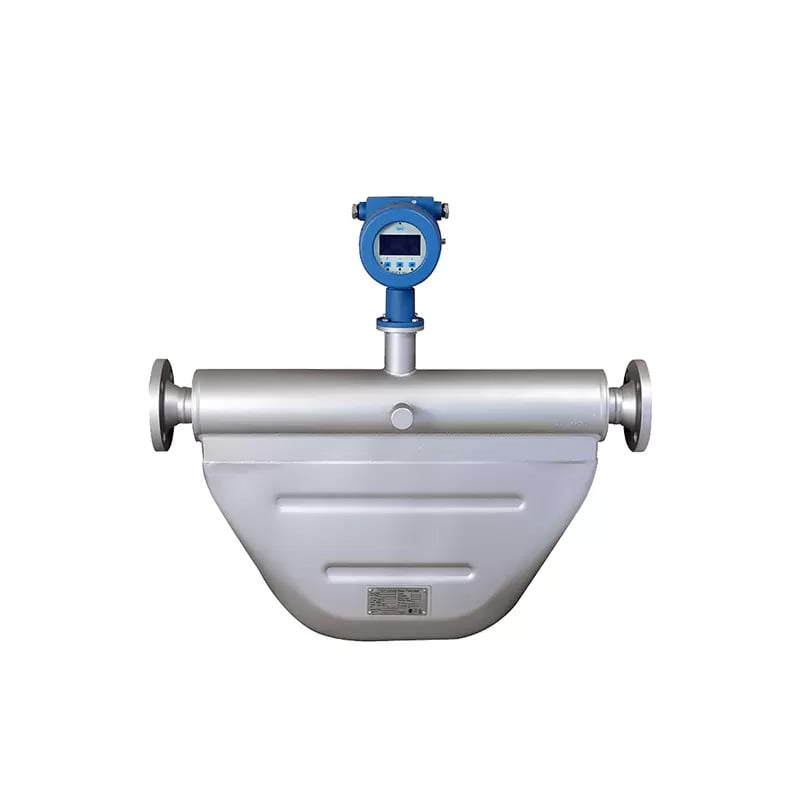
Coriolis Mass Flow Meter W Shape (MTD-ACMW)
- High accuracy up to ±0.1 %, Good reliability
- Good zero-stability and anti-interference performance
- No moving parts, no maintenance required

Coriolis Mass Flow Meter / Controller MTL20FE
- Designed for low flow gas / liquid measuring.
- High precision, good repeatability. For liquids, the measurement accuracy can reach ± 0.25%; for gases, the measurement accuracy can reach ± 0.5%.
- Turn Down Ratio: 50:1 for digital mass flow controller; 100:1 for digital mass flow meter.
- Response Time: mass flow controller<0.2s; mass flow meter <0.1s
- Integrated PID controller to regulate flow rate.
Thermal Mass Flow Meters
Working Principle: Measures gas mass flow based on the heat dissipation rate as fuel gas passes over a heated sensor.
Advantages:
- Ideal for measuring low-flow or clean gas fuels
- Provides direct mass flow measurement without pressure or temperature compensation Limitations:
- Not suitable for liquids
- Performance can be affected by humidity or particles in the gas
Best for: Natural gas, propane, and hydrogen flow measurement.

Explosion-proof Thermal Mass Flowmeter (MT212x-Ex)
- Explosion-proof class: Ex db IIC T6 Gb / Ex tb IIIC T80°CDb.
- Suitable for pipes with diameters from DN20 to DN1000.
- Ultra-wide 1:2500 turndown ratio, the measuring range is from 0.1 Nm/s to 250 Nm/s.
- Full-digital signal processing, higher accuracy, long-term stability.
- The fully isolated electrical structure can completely filter out field disturbance.

Thermal Gas Mass Flow Meter / Controller (MTL20FD)
- Designed for low flow gas measuring.
- Turn Down Ratio: 50:1 for digital mass flow controller; 100:1 for digital mass flow meter.
- Response Time: mass flow controller<0.2s; mass flow meter <0.1s
- Integrated PID controller to regulate flow rate
Turbine Flow Meters
Working Principle: Uses the rotation speed of a turbine blade to determine the volumetric flow rate.
Advantages:
- Good accuracy at medium to high flow rates
- Compact and cost-effective Limitations:
- Sensitive to viscosity changes
- Requires stable, clean fuel
Best for: Gasoline, kerosene, or aviation fuel under clean conditions.
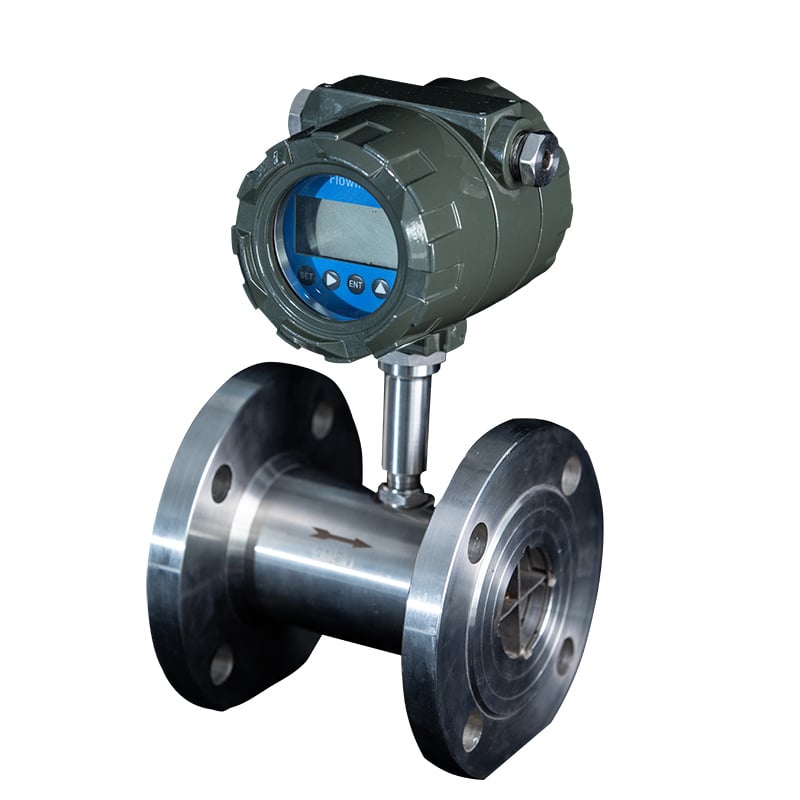
High Accuracy Liquid Turbine Flow Meter (LWGYMT-AJWL)
- High accuracy up to ±0.2 %, with good repeatability.
- 1:20 turndown ratio.
- Space-saving structure with DN0.5 minimum bore size.
- Colors and appearance can be customized as requested
Ultrasonic Flow Meters
Working Principle: Measures flow velocity using the time difference between transmitted and received ultrasonic pulses.
Advantages:
- No moving parts, minimal maintenance
- Suitable for both liquid and gas fuels
- Can be installed non-intrusively (clamp-on type) Limitations:
- Accuracy depends on installation and pipe conditions
- Not ideal for very viscous or aerated fuels
Best for: Clean liquid fuels, pipeline monitoring, and large-diameter flow measurement.
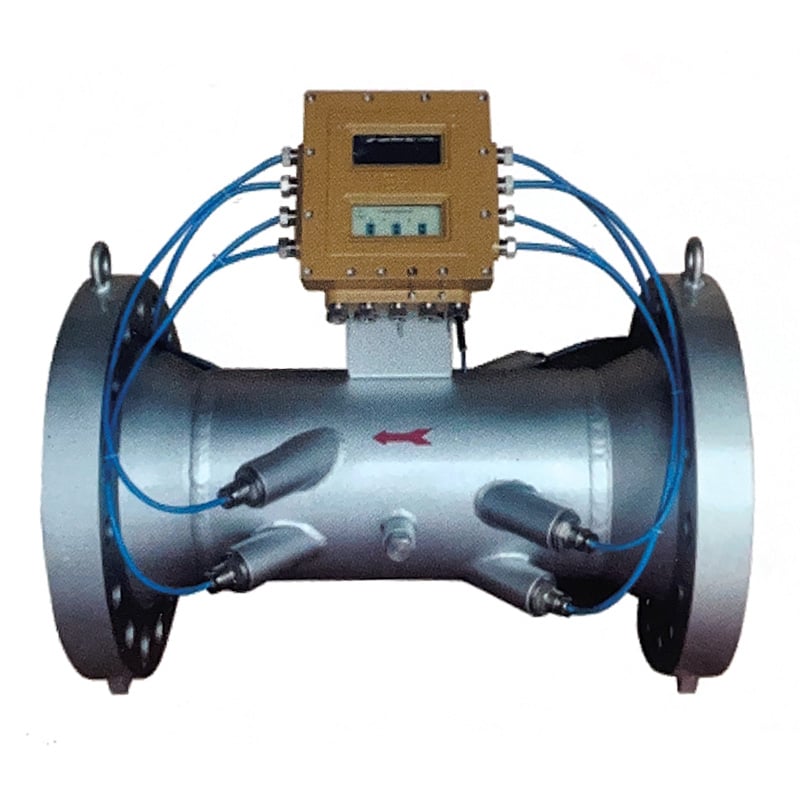
High Precision Ultrasonic Gas Flow Meter (MTS-LYNSB)
- High accuracy for gas up to ±0.5%
- No moving parts, no presure loss, no line obstructions
- No lubrication or periodic maintenance
- Measurement is not affected by gas properties
- 100:1 wide turndown ratio
- Bi-directional capability
How to Choose the Right Fuel Flow Meter
Selecting the proper fuel flow meter depends on the type of fuel, flow conditions, accuracy requirements, and installation environment. Below are key factors to consider:
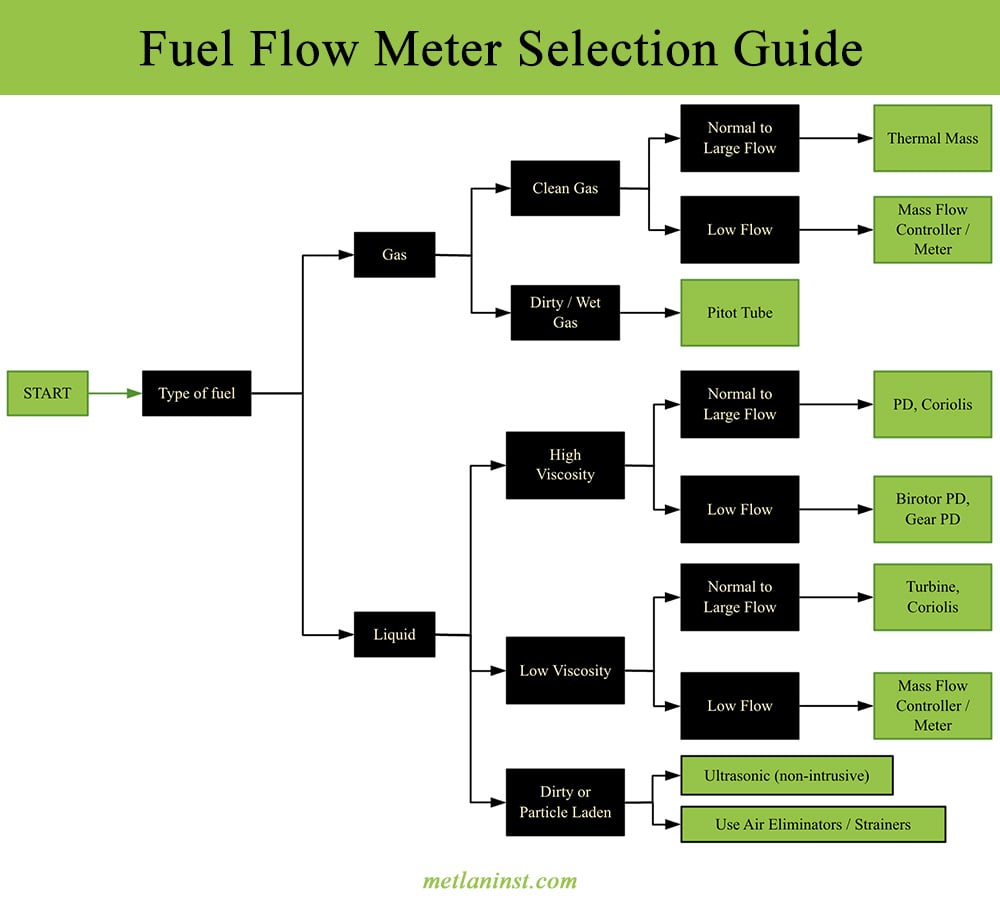
Fuel Type and Properties
Identify whether you are measuring liquid or gas fuel, its viscosity, density, and temperature range.
- For viscous liquids (diesel, oil) → choose Positive Displacement or Coriolis meters.
- For light liquids (gasoline, kerosene) → Turbine or Coriolis meters work well.
- For gas fuels (natural gas, hydrogen) → Thermal Mass or Ultrasonic meters are preferred.
Measurement Range and Accuracy
Define the required flow range and precision level.
- Laboratory and testing setups require ±0.2% or better accuracy (Coriolis, PD).
- Industrial transfer applications may allow ±1% accuracy (Thermal Mass, Turbine).
Pressure and Temperature Conditions
High-pressure or high-temperature systems require robust sensors and materials resistant to corrosion and thermal stress. Stainless steel or specialized alloys are typically used.
Maintenance and Installation
For remote or continuous operations, select meters with low maintenance and digital output compatibility (e.g., 4–20 mA, RS485, or Modbus).
Clamp-on ultrasonic meters can be ideal when non-intrusive installation is required.
Cost and Lifecycle
Consider total ownership cost, not just the purchase price. A higher initial investment in a Coriolis or PD meter may yield long-term savings through accuracy, reduced downtime, and energy efficiency.
Fuel Flow Meter Selection Guide
| Selection Factor | Key Considerations | Recommended Flow Meter Types | Typical Fuel Examples |
|---|---|---|---|
| Fuel Phase | Determine whether the fuel is liquid or gas. | – Liquid: Positive Displacement, Coriolis, Turbine – Gas: Thermal Mass, Ultrasonic | Liquid fuels: Diesel, Gasoline, Jet Fuel Gas fuels: Natural Gas, Propane, Hydrogen |
| Viscosity | High-viscosity fuels require meters that handle thick, slow-moving fluids. | – High viscosity: PD, Coriolis – Low viscosity: Turbine, Coriolis | Diesel, Heavy Oil → PD/Coriolis Gasoline, Kerosene → Turbine/Coriolis |
| Accuracy Requirement | Define precision needed for your process (e.g., testing vs. monitoring). | – High accuracy (±0.2%): Coriolis, PD – Medium (±0.5%–1%): Turbine | Engine testing → Coriolis, PD, Fuel transfer → PD/Turbine |
| Cleanliness / Particle Content | Dirty or particle-laden fuels can cause mechanical wear. | – Clean fuels: Turbine, Coriolis – Dirty fuels: Ultrasonic (non-intrusive) | Biodiesel (filtered) → PD Heavy oil with impurities → Ultrasonic |
| Budget / Lifecycle Cost | Consider total cost of ownership (accuracy, maintenance, calibration). | – Low-cost: Turbine – Mid-range: PD – Premium: Coriolis | Cost-sensitive sites → Turbine Long-term precision → Coriolis |
Applications of Fuel Flow Meters
Fuel flow meters are essential in multiple sectors:
- Automotive and Marine Engines: Real-time fuel consumption monitoring and efficiency analysis.
- Aviation: Precise jet fuel measurement for safety and performance.
- Power Generation: Monitoring fuel supply to turbines and boilers.
- Oil & Gas Industry: Custody transfer, blending, and leak detection.
- Laboratory and Research: Calibration, performance testing, and emission studies.
Accurate measurement not only improves operational efficiency but also helps meet environmental and safety regulations.
A fuel flow meter is more than just a measuring device—it is a critical component that ensures energy efficiency, process control, and cost management. Whether dealing with diesel, gasoline, natural gas, or hydrogen, selecting the right flow meter type can significantly impact performance and reliability.

